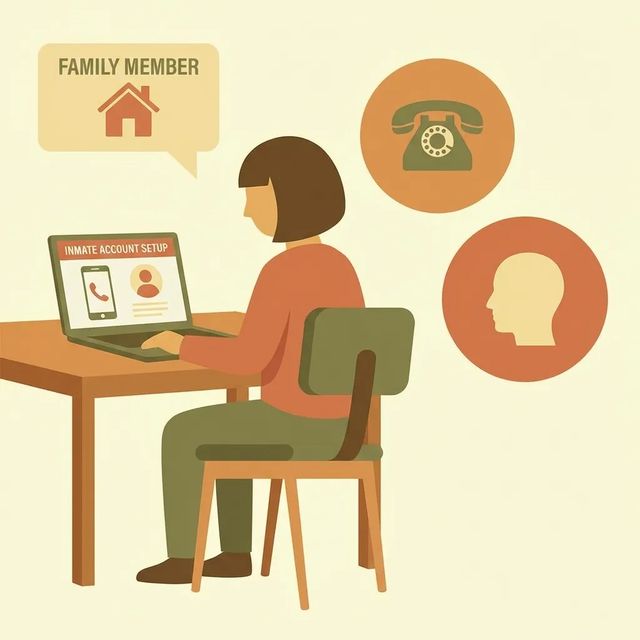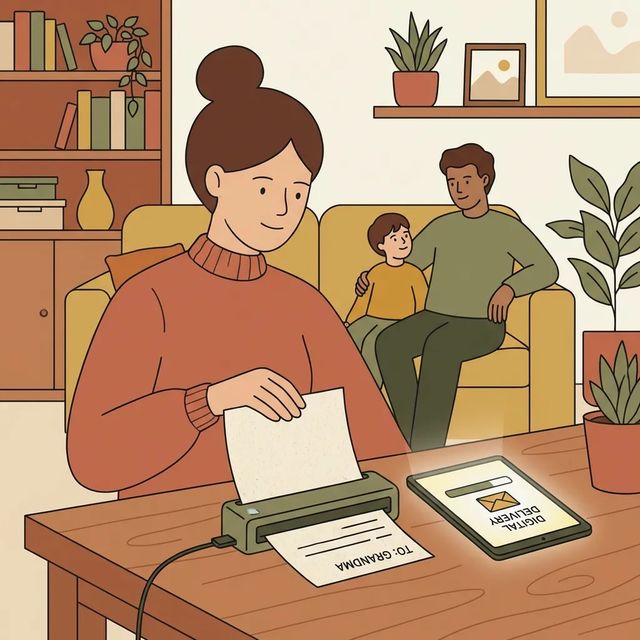Chilton County Jail
Need to reach someone at Chilton County Jail? Look up an inmate, send messages or mail, add commissary funds, or schedule a visit.
Explore
Find an Inmate at Chilton County Jail
Search for a loved one and send messages and photos in minutes.

Guides for This Facility

Attorney Visits at Chilton County Jail: Checklist for Lawyers Before They Come
Attorney visits at Chilton County Jail are allowed, but showing up with the right credentials—and leaving the wrong items behind—will save you time and prevent you from being turned away. Use this checklist to prep before you go.
Read Guide
Setting Up Phone Calls from Chilton County Jail: Securus account, facility code 5500, and three-way call warning
Getting phone calls from someone at Chilton County Jail comes down to one thing: setting up your Securus account correctly and avoiding mistakes that can get your number blocked.
Read Guide
How to Send Mail to Someone at Chilton County Jail (2022 digital mail rules)
Chilton County Jail changed how personal mail works in 2022. Send letters the old way and they'll likely be delayed or returned. Here's how to use the correct digital-mail address and format.
Read GuideAt a Glance
Visitation
- Visitors must dress appropriately; prohibited clothing examples include halter tops, short shorts, transparent/revealing clothes, and vulgar clothing.
- Video/home visits are available daily from 8:00 AM to 10:30 PM, with no visitation allowed from 11:00 AM–12:00 PM.
- Attorneys must show a government-issued ID and a current Bar Card (ASB number); access will be denied if the Bar Card is not up-to-date.
Communication
- Video/home visits are available daily from 8:00 AM to 10:30 PM and there is no visitation from 11:00 AM to 12:00 PM.
- Securus Video Connect is the vendor for video sessions and supports visits via the free app, computer, or tablet with vendor registration steps and terms.
- All inmate phone calls are handled through Securus as collect, pre‑paid, or credit card calls and are subject to monitoring and recording.
Mail & Letters
- Effective 03/29/2022 personal (non-legal) mail must be sent through the Securus Digital Mail Center at the Tampa PO Box specified by the jail.
- Legal mail and money orders must be mailed directly to Chilton County Jail and not to the Securus Digital Mail Center.
- The jail’s FAQ specifies mailing details and content restrictions including the inmate’s full name, use of pencil or black/blue ink, white paper, and no photos.
Sending Commissary
- Commissary orders are processed Monday at 10:30pm and delivered Wednesday; funds must be on the inmate account by 5:00am Monday.
- Deposits may be made at the facility lobby kiosk (accepting cash, debit, and credit) or through the jail’s online deposit vendor.
- After release, remaining commissary funds are paid at the Chilton County Sheriff’s Office at the courthouse as checks Monday–Friday 8:00am–4:00pm; no checks on weekends or holidays.
Facility Info
- The jail stores inmate property for only 10 days before disposal or donation, and families may pick up property seven days a week at 301 City Street with valid photo ID.
- Wallets, keys, phones, jewelry, ID, legal documents, and purses are exceptions and will be maintained in storage until the inmate’s release.
- Chilton County Jail and Southern Health Partners will not discuss an inmate’s healthcare with family or friends due to HIPAA laws.
Based on official sources and community feedback.Learn how we verify
Topic Overviews
Visitation
Visiting Chilton County Jail starts with dressing appropriately—halter tops, short shorts, transparent or revealing clothing, and vulgar attire are all prohibited. Show up in the wrong outfit and you'll be turned away. Video and home visits run daily from 8:00 AM to 10:30 PM, with a break from 11:00 AM to 12:00 PM. Remote visits go through Securus, and the jail provides a video link plus support for sessions. New to the process? Plan to register or schedule ahead where required. Attorneys follow separate rules: bring a government-issued ID and current Bar Card (ASB number), but leave electronic devices and bags behind—staff will provide pens. Ministers can also visit once added to the inmate's visitation list.
Read full guideMail & Letters
Sending mail to someone at Chilton County Jail? Here's the key change: since 03/29/2022, routine personal mail goes through the Securus Digital Mail Center using the Tampa PO Box specified by the jail—not to the jail itself. Legal correspondence and money orders are different. Those go directly to the jail at the facility address listed in their FAQ. Follow the labeling and content rules carefully. Use the incarcerated person's full name, write on plain white paper in pencil or black/blue ink, and skip photographs or other restricted items. Reading materials are limited, including one faith-based book tied to a documented religion. Medical items like medications or eyeglasses have separate drop-off and approval procedures.
Read full guideSending Commissary
Chilton County Jail accepts deposits through the lobby kiosk (cash, debit, or credit) and through their online deposit vendor. Commissary orders are processed Monday at 10:30pm and delivered Wednesday, so funds need to hit the account by 5:00am Monday to cover that week's order. After release, remaining commissary funds can be collected at the Chilton County Sheriff's Office at the courthouse. Refunds come as checks Monday–Friday, 8:00am–4:00pm—no checks on weekends or holidays. Inmates on disciplinary lockdown may only purchase hygiene items, medical supplies, writing materials, and whites. For bond, you have three options: cash bond through the Circuit Clerk, a property bond with specific requirements, or an approved bonding company listed by the jail.
Read full guideFacility Info
Chilton County Jail is a 232-bed facility commanded by Warden Ann Davis with 30 correctional officers on staff. The jail keeps most inmate property for only 10 days before disposing of or donating it—so pick up belongings promptly. Families can collect property seven days a week at 301 City Street with a valid photo ID. Some items get different treatment: wallets, keys, phones, jewelry, ID, legal documents, and purses stay in storage until release. Don't expect medical updates. The jail and its medical contractor, Southern Health Partners, won't discuss an inmate's healthcare with family or friends due to HIPAA. Funeral viewing attendance is limited to immediate family and depends on local-viewing requirements, time limits, and classification restrictions.
Read full guideCommon Questions
Showing 6 of 14What clothing is prohibited for visitors at Chilton County Jail?
Halter tops, short shorts, transparent or revealing clothing, and vulgar apparel are all prohibited. If your outfit doesn't meet the dress code, you'll be refused at the door or asked to change.
VisitationWhen can I schedule a video visit with an inmate at Chilton County Jail?
Video/home visits are available daily from 8:00 AM to 10:30 PM, except there’s no visitation from 11:00 AM to 12:00 PM. Chilton County Jail uses Securus for video visits and provides a video link and support for remote sessions.
VisitationWhat happens if an attorney's Bar Card is expired when arriving for a visit?
You’ll be denied access. Attorneys must present a government-issued ID and a current Bar Card (ASB number) to be admitted.
VisitationWhat are the video visiting hours at Chilton County Jail?
Video and home visits are available daily from 8:00 AM to 10:30 PM. There’s no visitation from 11:00 AM to 12:00 PM each day.
CommunicationHow do I set up phone calls or add money for an inmate at Chilton County Jail?
Set up and fund a Securus account by calling 1-800-844-6591 and entering facility code 5500 when prompted. This supports collect, pre‑paid, and credit card calling options.
CommunicationWhere should I send a personal letter for someone at Chilton County Jail?
Send routine personal mail through the Securus Digital Mail Center using the Tampa PO Box specified by the jail. This policy took effect 03/29/2022.
Mail & LettersMore Guides
Ready to Connect?
Search for your loved one to start communicating today
Did You Know?
Chilton County Jail in Alabama is a 232-bed facility commanded by Warden Ann Davis and operated by the Corrections Division. The jail is staffed by 30 correctional officers.
This guide is based on feedback from dozens of families and official facility documentation. Learn how we verify
